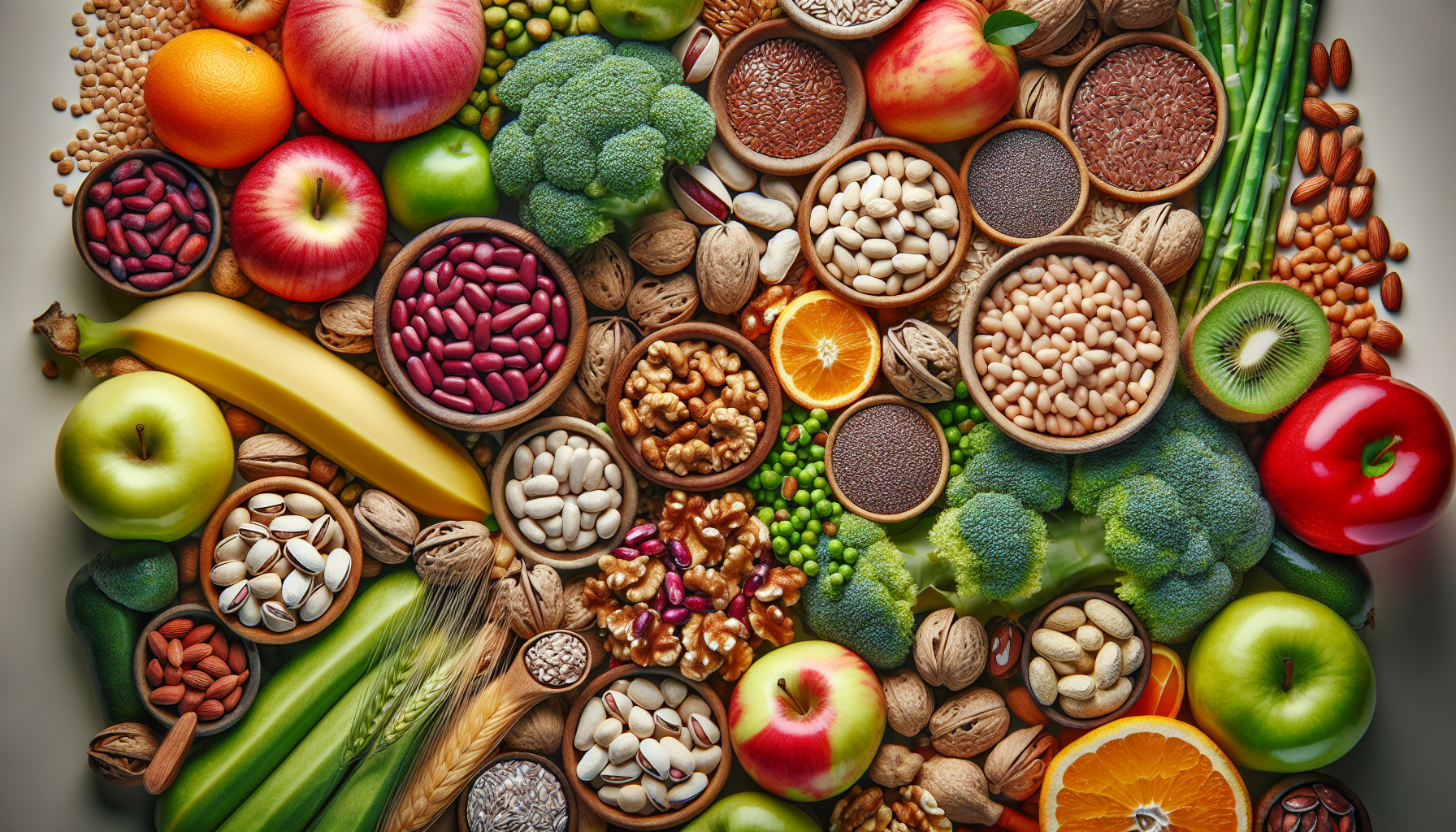Fiber — it’s a term we often hear in the context of a healthy diet. Yet, its significance goes beyond just being part of nutritional advice. Dietary fiber is a powerful component of our meals, playing a crucial role in maintaining digestive health and function. In this article, we’ll explore the indisputable connection between dietary fiber and digestive health, unraveling how this unassuming dietary constituent can have far-reaching effects on our wellbeing.
What Is Dietary Fiber?
Dietary fiber is the indigestible part of plant foods that passes relatively intact through our stomach, small intestine, and colon. There are two main types: soluble fiber, which dissolves in water to form a gel-like material, and insoluble fiber, which does not dissolve in water and helps add bulk to the stool. Both types are essential for a healthy digestive system.
As we delve deeper into the significance of fiber, it’s essential to acknowledge that while fiber is a key player in digestive health, it’s not the sole factor. For a broader understanding of digestive wellness, consider reading about the importance of gut health for overall wellbeing, which complements the role of fiber in our diet.
The Benefits of Fiber for Digestive Health
Regulating Bowel Movements
Insoluble fiber has a ‘bulking’ effect, making it easier for waste to pass through the intestines. It reduces the chance of constipation and helps maintain regular bowel movements, which is essential for expelling toxins from the body. In contrast, soluble fiber can help solidify loose stools by absorbing water and adding form to the stool.
Maintaining Intestinal Health
Fiber is a prebiotic, providing nourishment for beneficial gut bacteria. By fostering a healthy microbiome, fiber helps protect against certain gastrointestinal conditions. The relationship between fiber and gut flora is complex, and for those interested in delving further, the article on the connection between gut microbiome and food cravings offers a fascinating look at how our diet influences our gut bacteria.
Controlling Blood Sugar Levels
Soluble fiber slows down the absorption of sugar, helping to control blood sugar levels. This is particularly beneficial for individuals with diabetes or those at risk of developing the condition. In addition, a fiber-rich diet can reduce the surge in insulin levels post-meal, promoting better overall endocrine health.
Aiding Weight Management
High-fiber foods are more filling than their low-fiber counterparts, which can lead to eating less and staying satisfied longer. Fiber’s role in weight management is further explained in the article on how digestive health influences weight management.
Reducing the Risk of Digestive Conditions
A high-fiber diet is linked to a lower risk of developing various digestive disorders, including hemorrhoids, diverticulitis, and irritable bowel syndrome (IBS). It can also play a role in reducing the risk of colon cancer, although the evidence is still emerging.
How Much Fiber Do We Need?
The American Heart Association recommends a daily fiber intake of 25 grams for women and 38 grams for men. However, the average American consumes only about 15 grams of fiber per day. It’s clear that most of us need to increase our fiber intake to reap its health benefits.
Incorporating Fiber into Your Diet
To boost your fiber intake, include a variety of fruits, vegetables, legumes, whole grains, nuts, and seeds in your diet. Here are some high-fiber food suggestions:
- Legumes such as beans, lentils, and chickpeas
- Whole grains like oats, quinoa, and brown rice
- Nuts and seeds, including almonds, chia seeds, and flaxseeds
- Fruits such as berries, pears, and apples
- Vegetables like broccoli, carrots, and Brussels sprouts
For those exploring natural wellness, CBD and its potential benefits could be of interest, especially considering its growing popularity in the health community.
External Resources for Further Reading
To expand your understanding, here are some niche and specific resources that provide additional insights into the benefits of dietary fiber:
- The Fiber and Gut Health Connection: An In-depth Analysis
- The Role of Fiber in Weight Management Strategies
- Dietary Fiber Intake and Reduced Risk of Colorectal Cancer
Potential Challenges and Solutions
While increasing fiber intake is generally beneficial, it should be done gradually to allow the body to adjust. A sudden increase in fiber can lead to bloating, gas, or cramping. Drinking plenty of water can help mitigate these effects and aid in fiber digestion.
Conclusion
Dietary fiber’s role in supporting a robust digestive system is undeniable. Its benefits ranging from regular bowel movements to the potential prevention of chronic diseases underscore its value in our diets. As we strive for better health, understanding and embracing the importance of fiber is a foundational step towards digestive wellness and overall health.
Remember, a comprehensive approach to digestive health goes beyond fiber. It encompasses understanding the symptoms of common digestive disorders and recognizing the need for a balanced lifestyle that includes proper hydration, stress management, and regular physical activity.
By making informed choices about the foods we eat and understanding the role of dietary components like fiber, we can support not only our digestive system but our whole-body health. Start incorporating more fiber into your diet today and feel the difference it makes to your digestive health and overall wellbeing.



